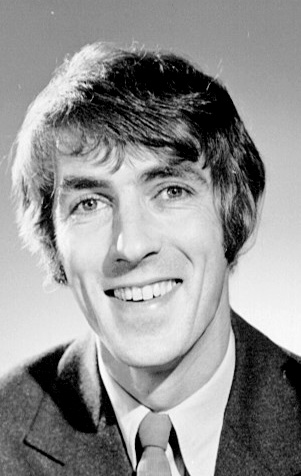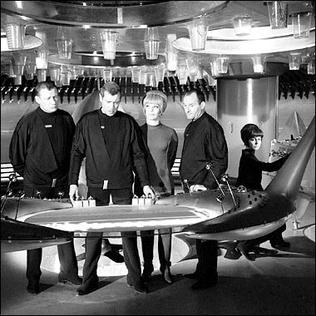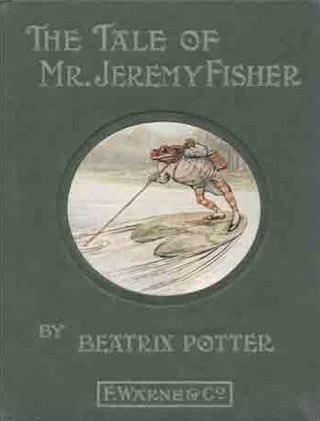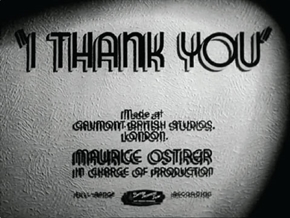Related Research Articles

Christopher J Morris is an English comedian, radio presenter, actor, and filmmaker. Known for his deadpan, dark humour, surrealism, and controversial subject matter, he has been praised by the British Film Institute for his "uncompromising, moralistic drive".

Meet the Feebles is a 1989 New Zealand puppet musical black comedy film directed by Peter Jackson, and written by Jackson, Fran Walsh, Stephen Sinclair and Danny Mulheron. It features Jim Henson-esque puppets in a perverse comic satire. Like Henson's Muppets, the Feebles are animal-figured puppets who are members of a stage troupe. However, whereas the Muppets characterize positivity, naïve folly, and innocence, the Feebles largely present negativity, vice, and other misanthropic characteristics. It is the first Jackson film that was co-written by his future partner Fran Walsh, who has gone on to act as co-writer for all his subsequent films.

Peter Edward Cook was an English comedian, actor, satirist, playwright and screenwriter. He was the leading figure of the British satire boom of the 1960s, and he was associated with the anti-establishment comedic movement that emerged in the United Kingdom in the late 1950s.

Dudley Stuart John Moore CBE was an English actor, comedian, musician and composer. Moore first came to prominence in the UK as a leading figure in the British satire boom of the 1960s. He was one of the four writer-performers in the comedy revue Beyond the Fringe from 1960 that created a boom in satiric comedy, and with a member of that team, Peter Cook, collaborated on the BBC television series Not Only... But Also. As a popular double act, Moore’s buffoonery contrasted with Cook’s deadpan monologues. They jointly received the 1966 British Academy Television Award for Best Entertainment Performance. They worked together on other projects until the mid 1970s, by which time Moore had settled in Los Angeles to concentrate on his film acting.

Marvin the Paranoid Android is a fictional character in The Hitchhiker's Guide to the Galaxy series by Douglas Adams. Marvin is the ship's robot aboard the starship Heart of Gold. Originally built as one of many failed prototypes of Sirius Cybernetics Corporation's GPP technology, Marvin is afflicted with severe depression and boredom, in part because he has a "brain the size of a planet" which he is seldom, if ever, given the chance to use. Instead, the crew request him merely to carry out mundane jobs such as "opening the door". Indeed, the true horror of Marvin's existence is that no task he could be given would occupy even the tiniest fraction of his vast intellect. Marvin claims he is 50,000 times more intelligent than a human, though this is, if anything, an underestimation. When kidnapped by the bellicose Krikkit robots and tied to the interfaces of their intelligent war computer, Marvin simultaneously manages to plan the entire planet's military strategy, solve "all of the major mathematical, physical, chemical, biological, sociological, philosophical, etymological, meteorological and psychological problems of the Universe, except his own, three times over", and compose a number of lullabies.

Sir Roger George Moore was an English actor. He was the third actor to portray fictional British secret agent James Bond in the Eon Productions film series, playing the character in seven feature films between 1973 and 1985. Moore's seven appearances as Bond, from Live and Let Die to A View to a Kill, are the most of any actor in the Eon-produced entries. However, this record is tied by Sean Connery if the non-Eon-produced Never Say Never Again (1983) is included.

George Edward Cole, OBE was an English actor whose career spanned 75 years. He was best known for playing Arthur Daley in the long-running ITV comedy-drama show Minder and Flash Harry in the early St Trinian's films.
Richard Reid Ingrams is an English journalist, a co-founder and second editor of the British satirical magazine Private Eye, and founding editor of The Oldie magazine. He left the latter job at the end of May 2014.

Matthew Richard Lucas is an English actor, comedian, writer, and television presenter. He is best known for his work with David Walliams on the BBC sketch comedy series Little Britain and Come Fly with Me (2010–2011). Lucas first came to prominence on the comedy panel show Shooting Stars, in which he portrayed scorekeeper George Dawes from 1995 to 2009. From 2015 to 2017, Lucas portrayed the role of Nardole in the BBC series Doctor Who. He has also appeared in films, including Astro Boy (2009), Alice in Wonderland (2010), Bridesmaids (2011), Gnomeo & Juliet (2011), Small Apartments (2012), and Paddington (2014). Lucas presented The Great British Bake Off, alongside Noel Fielding from 2020 to 2023.
Why Bother? is a comedy radio series made for BBC Radio 3, consisting of five 10-minute-long spoof interviews between Chris Morris and Peter Cook's character Sir Arthur Streeb-Greebling. Recorded in late 1993, the show was originally broadcast from 10–14 January 1994. Cook received the sole writing credit whilst Morris also produced the series, although the pair ad-libbed the majority of the dialogue, which Morris then edited.
Not Only... But Also is a BBC British sketch comedy show starring Peter Cook and Dudley Moore that aired in three series between 1964 and 1970.

Raumpatrouille – Die phantastischen Abenteuer des Raumschiffes Orion, also known as Raumpatrouille Orion, and Space Patrol Orion in English, was the first German science fiction television series. Its seven episodes were broadcast by ARD from 17 September 1966. Being a huge success with several reruns, audience ratings went up to 56%. Over the years, the series acquired a distinct cult status in Germany.

Sir Ludovic Henry Coverley Kennedy was a Scottish journalist, broadcaster, humanist and author best known for re-examining cases such as the Lindbergh kidnapping and the murder convictions of Timothy Evans and Derek Bentley, and for his role in the abolition of the death penalty in the United Kingdom.

Monte Carlo or Bust! is a 1969 comedy film, also known by its American title, Those Daring Young Men in Their Jaunty Jalopies. A co-production of the United Kingdom, France and Italy, the story is based on the Monte Carlo Rally – first raced in 1911 – and the film, set in the 1920s, recalls this general era. A lavish all-star film, it is the story of an epic car rally across Europe that involves a lot of eccentric characters from all over the world who will stop at nothing to win.

The Tale of Mr. Jeremy Fisher is a children's book, written and illustrated by Beatrix Potter. It was published by Frederick Warne & Co. in July 1906. Jeremy's origin lies in a letter she wrote to a child in 1893. She revised it in 1906, and moved its setting from the River Tay to the English Lake District. The tale reflects her love for the Lake District and her admiration for children's illustrator Randolph Caldecott.

The Rise and Rise of Michael Rimmer is a 1970 British satirical film starring Peter Cook, and co-written by Cook, John Cleese, Graham Chapman, and Kevin Billington, who directed the film. The film was devised and produced by David Frost under the pseudonym "David Paradine". Cleese and Chapman began writing the script following patronage from Frost. Cook and Billington were later called upon to complete the writing as, according to Cleese, he and Chapman "had no idea what they were doing".

I Thank You is a 1941 black and white British comedy film directed by Marcel Varnel and starring Arthur Askey, Richard Murdoch, Graham Moffatt and Moore Marriott. It was produced by Edward Black at Gainsborough Pictures.

The Hound of the Baskervilles is a 1983 British made-for-television mystery thriller film directed by Douglas Hickox, starring Ian Richardson as Sherlock Holmes and Donald Churchill as Dr. John H. Watson. It is based on Arthur Conan Doyle's 1902 novel The Hound of the Baskervilles.
The Hound of the Baskervilles is a 1982 British television serial made by the BBC. It was produced by Barry Letts, directed by Peter Duguid, and starred Tom Baker as Sherlock Holmes and Terence Rigby as Doctor Watson. The adaptation aired as a four-part serial. The serial is based on Arthur Conan Doyle's 1902 Sherlock Holmes novel The Hound of the Baskervilles. The music score was composed and conducted by Carl Davis.
Play Wisty For Me – The Life of Peter Cook is an original play by Matthew Perret and Jeremy Limb, using the characters portrayed by Peter Cook and Dudley Moore to tell the story of Peter Cook's life and pay tribute to his comic genius. After Moore's death, it was slightly rewritten, to become more of a tribute to Moore too.
References
- 1 2 William Cook (ed), Goodbye again: the definitive Peter Cook and Dudley Moore, Random House, 2005, pp 352-2
- 1 2 Harry Thompson, Biography Of Peter Cook, Hachette UK, 2011
- 1 2 ALEX MUSSON & PETER GORDON, "The Greatest Hits of Peter Cook", Mustard Magazine website, http://www.mustardweb.org/petercook/index.htm
- ↑ Ben Thompson, Sunshine on Putty: The Golden Age of British Comedy from Vic Reeves to The Office, HarperCollins UK, 2010